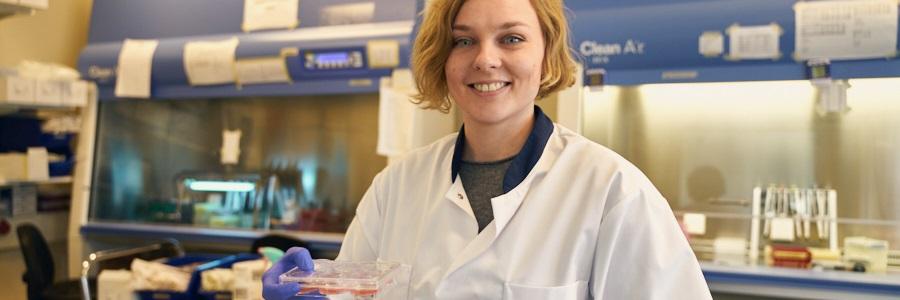
Alzheimer Nederland awarded a €65 000 fellowship to Lill Eva Johansen for research on the effect of Abca7 mutations associated with Alzheimer’s disease. The work will be performed in human brain cells derived from stem cells that are gene edited using CRISPR technology.
Lill Eva Johansen studies neurological diseases at the level of molecular and cell biology. For her PhD research at the UMC Utrecht, she used motor- and sensory neurons derived from human induced pluripotent stem cells (iPSC) to study inflammatory neuropathies. Now she transfers her experience with iPSC-based disease models to a new area as she joins the Alzheimer’s research community at the CNCR, as a postdoctoral fellow in the group of dr. Rik van der Kant (FGA).
They will collaborate with geneticist Prof. Dr. Kristel Sleegers at the VIB-UAntwerp Center for Molecular Neurology, who through her studies of Abca7 mutations associated with Alzheimer’s disease has accumulated exceptional knowledge of deleterious Abca7 variants.
The project aims provide a better understanding of the function of Abca7 in human brain cells and its role in Alzheimer’s pathophysiology. To achieve this, CRISPR/Cas9 gene editing will be used to generate a mutant Abca7 iPSC-line. iPSCs will then be differentiated into neurons and glia, and subjected to biochemical assays which address the previously reported role of Abca7 in lipid homeostasis, and other molecular processes related to Alzheimer’s disease.